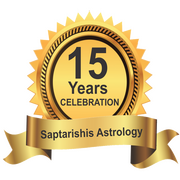If a path of journey is straight and clear without any obstruction, our journey can be simple and easy without any tension. But whenever our journey passes through a dark portion, it becomes very difficult and obstructive to our journey while passing through this dark portion. We become very perturbed …
Read More »Argala Application – 1 by Iranganti Rangacharya
Typed & Proof Read By Swathi Venkata Lakshmi . K JAIMINI MAHARSHI in his Sutragrantha, after his benedictory sutra, commences with a novel exposition of the aspects in three sutras. The use of this novel concept of the aspects is shown next in another new item of argala, in six …
Read More »Vedanga Jyothisha – Some Observations by Iranganti Rangacharya
Typed and Proof-read by Smt. R. Shakuntala, India The earliest book in antiquity on Hindu Astronomy is Vedanga Jyothisha. The Hindu astronomers refrained from making alterations of some of the readings of Vedanga Jothisha, though necessary, lest they may be labelled irreligious. But by using the pseudonyms like Brahma Siddhanta, …
Read More »Varaha Mihira by Iranganti Rangacharya
[The article is reproduced from the very first issue of “The Times of Astrology”, 1985 for the benefit of our esteemed readers. – Editor ] Varaha Mihira occupies an unrivalled niche in the three ramifications of Vedanga Jyotisha. It wouldn’t be a hyperbole if Varaha as an effulgent luminary is …
Read More »Jupiter Hampered by Babubhai N. Yodh and B.D. Vaghela
It is a common principle observed in Vedic Astrology that whenever Sun transits through Sagittarius and Pisces, this period of Sun transit is not considered auspicious period for marriage. Similarly when Jupiter transits through Leo, it is also not considered favourable period for marriage. So combining above astrological principles, it …
Read More »Trikona Dasa – A Critical Review by Iranganti Rangacharya
The relevant Jaimini aphorism of Trikona Dasa is: मातृ पितृ धर्म प्राण्यादि स्त्रिकोणेmātṛ pitṛ dharma prāṇyādi strikoṇe which simply states that Trikona Dasa begins from Janma Lagna or the 5th house or the 9th house whichever is stronger. There is no divided opinion among the commentators with regard to …
Read More »Gripping of Planets by the Node -3 by Babu bhai Yodh and B.D. Vaghela
Two articles were published in previous issues of Saptarishis Astrology Volume-3 and Volume-4 on this topic. This is the third article in continuation of the same theory of Gripping of Planets by the Nodes. We may summarize the rules given in the previous articles as under:- A Planet in conjunction, …
Read More »The Nine Jewels of Vikramarka by Iranganti Rangacharya
Two thousand years ago, Vikramarka ruled Bharat with the capital city of Ujjaini. , He is remembered even today, the most renowned of the great emperors, not merely by his conquest of several countries, hut by his magnificent wealth, nobility and literary servitude. He lies immortal in our Indian epic …
Read More »The Evil of Ekargala in Marriage Muhurtha by Iranganti Rangacharya
Typed and proofread by Ravi Gollapalli, Hyderabad, India Taboo for Marriages EKARGALA IS ONE of the 21 great evils mentioned in texts of electional astrology. This great evil is disallowed for marriage Muhurthas, particularly in Kashmir (एकार्गलं तु काश्मीरे वेधं सर्वझ वर्जयेत्). One of the limbs of Panchanga is Yoga …
Read More »The Benedictory verse of Brihat Jataka by Iranganti Rangacharya
The first sanskrit verse of Brihad Jataka is benedictory. It is the verse of obeisance too to the Sun God. In the second verse, Varaha Mihira enunclates that his exposition of Hora Sastra in a nutshell slides on through the verses of various prosodi metres, with inward multiple meanings. The …
Read More » Saptarishis Astrology Magazine Into Creating Astrologers
Saptarishis Astrology Magazine Into Creating Astrologers











